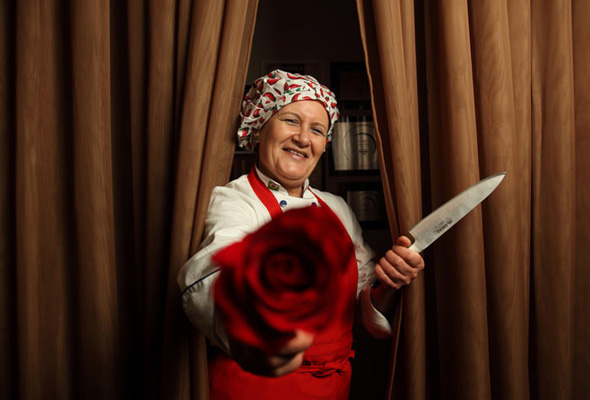

Throughout the 40-minute drive from Herdade do Esporão, a vineyard restaurant she runs some 70 kilometers away, she talked in torrents of Portuguese, occasionally taking long draws on her cigarette and politely blowing the smoke out the cracked window. If it weren’t for her flittering hands and those smoker’s pauses, during which I caught up with her chatter by doing shorthand translations in my head, I’d have been lost, as Ilda speaks no English. Suddenly her hands halted midair and she pointed to a scene deserving of its own postcard.
“Olhe.”
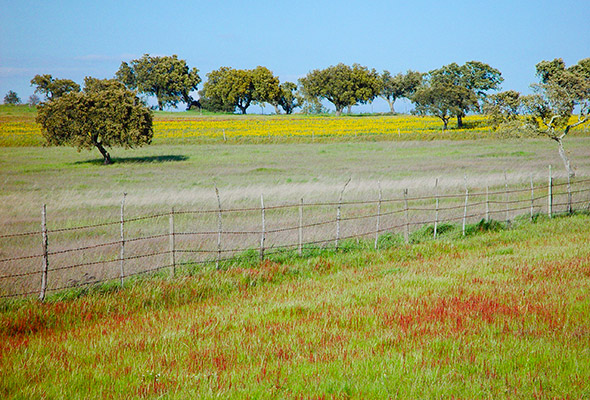
Beyond my window was a deep-green pasture speckled with Seurat-like dots of red, lavender, and yellow ground cover. It being April, the region, which bakes to a ubiquitous tawny in summer, was saturated with color. Pink almond blossoms drifted in the breeze. Budding groves of cork oak, their paprika-red trunks covered in numbers indicating the year the bark was harvested, lined the road. In the distance was a smattering of brilliant white farmhouses, their windows and doors outlined like thick eyeliner in iridescent blue, mustard yellow, and the rarer Christmas red. And above it all hung the famous, cloudless, Alentejan blue sky.
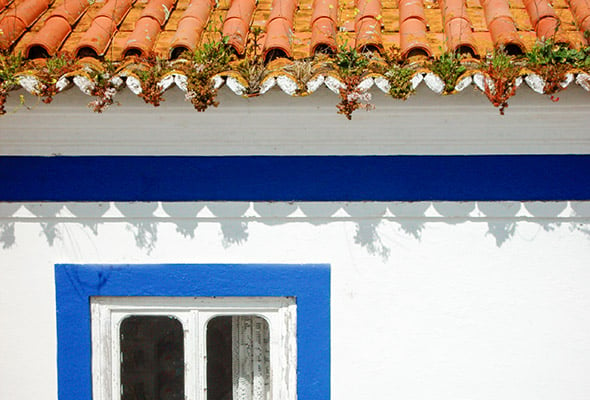
Many of these houses were empty and neglected, Ilda told me. Despite its size, Alentejo, which stretches from Spain to the Atlantic, is one of the country’s least populated regions. A collapse of opportunity had driven out many locals. According to Ilda, affluent Lisboetas and Europeans, bolstered by the euro, were renovating some of these forgotten estates for use as weekend places. One of the reasons, she insisted, was the local food.
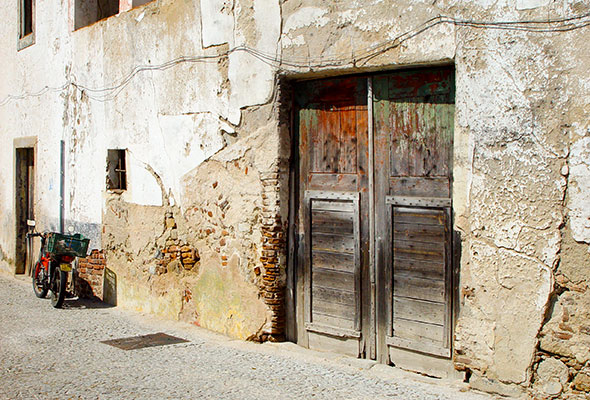

“Everyone loves our food,” she said, punctuating her words with a jab of her cigarette, “even if they weren’t born here.” That wasn’t just local pride talking. Ask most Portuguese their favorite type of food, and the answer, accompanied by a wistful look, is usually “Alentejan,” which is interesting considering the region’s cuisine is perhaps the humblest in Portugal. Although the grip of poverty is loosening, much of the diet is still based upon foraging due to habit handed down from previous generations who knew the necessity of thrift. Cilantro, garlic, oregano, herbs, and other wild things, including purslane and hortelã de ribeira, a type of mint, are ingredients in soups as well as seasonings for countless other dishes. Inarguably the province’s most famous seasoning is massa de pimentão, a paste of red bell peppers and salt. It’s massaged into all types of meat, especially porco preto, the prized black pigs that dine on fallen acorns of cork trees, a diet that makes their flesh nutty and sweet. Pigs, along with lambs, goats, and game birds (especially partridges), are favored meats. Because of Portugal’s squat dimensions, no region is ever far from the sea, so fish, including cação (dogfish) and the country’s beloved salt cod, rounds out the traditional table.
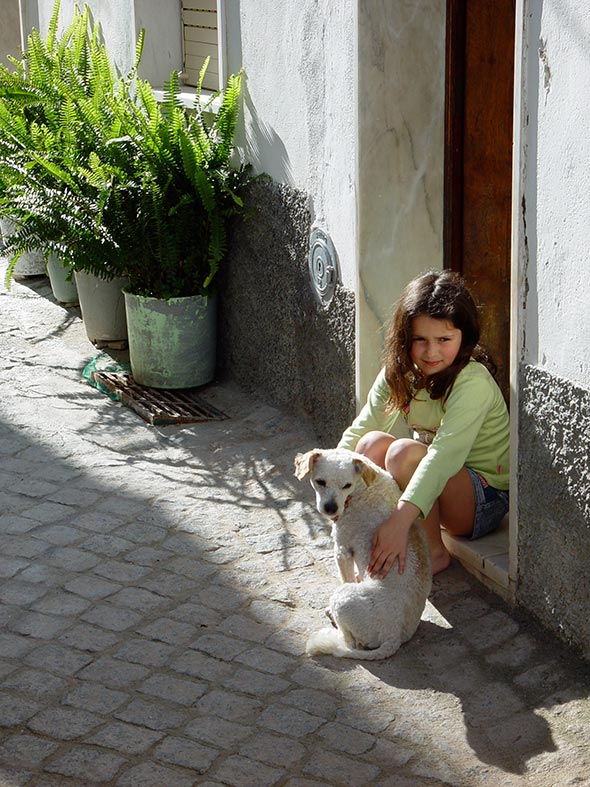
It’s from these simple, humble ingredients—known as comida pobre, or peasant food—that Ilda, a self-taught cook, has fashioned a peripatetic and illustrious 28-year career. Early that morning at Herdade de Esporão, she had heaved an immersion blender the size of a jack hammer into a pot of tomatoes and bread that would eventually become creamy, cold gaspacho and asked, “Why do you want to write about me?” Without waiting for my answer, she flicked on the machine, the whining drowning out her words, which were largely incoherent but included something about other, better chefs. Seeing she wasn’t convincing me, she hustled me out the door with the motherly imperative, “Come!” Eat! I was to enjoy what ended up being a five-hour lunch before I was allowed to ask any more questions

It’s this lack of pretension, of swagger so pervasive in Portugal’s nascent celebrity chef world, that makes Ilda unique. Well, that and the fact that she has remained on top while the professional cooking scene, once primarily a woman’s gig, was co-opted by school-trained male chefs, Portuguese and foreign. She survived the gender onslaught, besting many of her male colleagues with a Michelin star in 1997 and 1998 for her work at A Bolota, in Terrugem, while never losing her identity. At the moment, all the Michelin-knighted chefs in Portugal are men, and most of their restaurants cater—some would say pander—to an international crowd. The result is that Portugal has gone missing from the plate at many upscale restaurants in Lisbon, Porto, and the Algarve, a disturbing trend to Ilda. Her soul has always remained in the Alentejo, even when she was halfway around the world cooking for the glitterati living in Manhattan’s famed Dakota apartments, and it shows in her food.
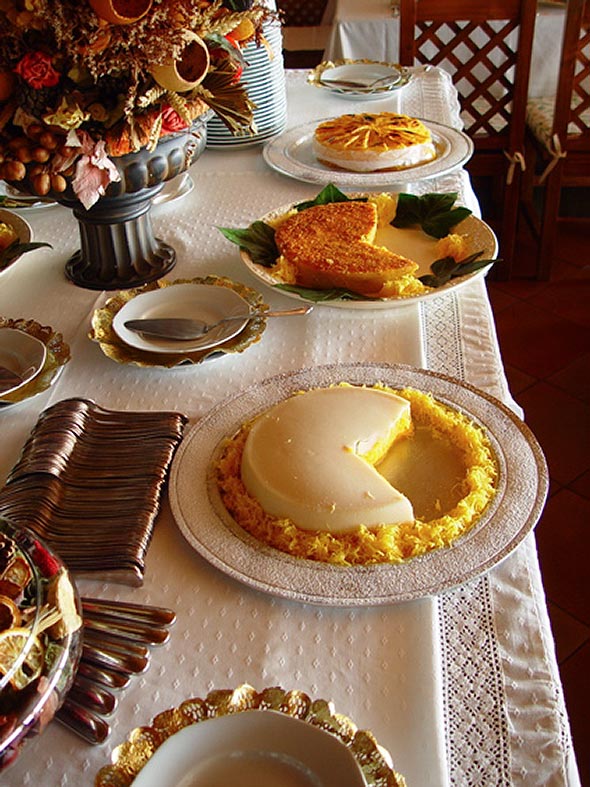
I parked the car in front of her whitewashed row house. It’s in a new section of town and has a tiny lawn in front, one that could be cut in five passes with a mower. Inside, the temperature dropped by at least 10 degrees, thanks to the thick rock walls covered in plaster. Roosters, the symbol of Portuguese hospitality, were everywhere. Through the door to her bedroom—situated right off the front hall so she could watch the comings and goings of Carolina, the only daughter still living at home—I saw pictures of the entire family on the bureau. In the back of the house, the generous kitchen was filled, surprisingly, with full-size appliances. Along with all the other rooms, it bore the hallmark I’ve experienced in Portuguese homes all my life: It was unsettlingly spotless.
We climbed the stairs and she opened the door to my room. She nudged her chin toward the bed, which was already turned down, and to the tower of towels on the dresser.
“Bem?”
“Sim.” Yes, it is all very good.
After a quick shower, I joined her on the couch. Though regal in her chef whites, she now defied her age by having changed into fitted jeans and an orange knit top. Not for her drab black, the default color for women of a certain age in Portugal. The torrents of Portuguese began again, and I watched her hands for clues. Born in the Ribatejo, the neighboring region renowned for rice patties, sável (shad), and cavaleiros (bullfighters who ride atop Portugal’s majestic Lusitanian horses), Ilda said she had no intention of becoming a chef. It was in 1980, while searching for ways to earn extra cash with her husband, Francisco, whom she would drop years later after his stunning show of infidelity, that the then-25-year-old Ilda stumbled upon an ad for a casal, or husband-and-wife team, to care for the Portuguese consul at his home in New York City.
“In the interview [in Lisbon],” she said, “he took one look at me and said, ‘No girl your age knows how to boil a potato, let alone cook.’ I said, ‘Give birth to two daughters and see how fast you learn to cook, clean, and pick up after someone else.’” Impressed, he offered them the position with the caveat that if she didn’t work out, she’d cook just long enough to earn their airfare home. Within weeks, she was not only coddling one of the most important representatives of the Portuguese government in America, but also winning admirers outside the official residence.
“They had a custom at the Dakota of celebrating the anniversary of the building with a potluck dinner,” she said. “My first year, I set up a beautiful table with Portuguese flags. It was covered with pastéis de bacalhau (salt cod fritters), bacalhau com cogumelos (salt cod simmered with mushrooms), arroz com pato (roast duck with rice), everything I could think of.” As residents milled about, no one stopped at her table. Finally, a woman took a fritter and disappeared, only to return with a friend. Not long after, the table was completely surrounded.
“I couldn’t speak English,” she continued, “so I just nodded and pointed. Everyone was there: Lauren Bacall, Yoko Ono, that Russian ballet dancer [Rudolf Nureyev], the man who owned Tavern on the Green. The next year, my table was one of the first to be emptied.” Warner LeRoy, owner of Tavern on the Green, was so smitten that whenever particularly beguiling aromas wafted through the halls to his apartment, he’d rap on Ilda’s door, and she’d slip him bites of the consul’s dinners.
Back in Portugal, with six years of intensive cooking experience behind her, Ilda went into business with her sister-in-law, Julia Vinagre, a showman of unrelenting, some would say pathological, ambition. With Ilda in the kitchen, Julia was free to be the face of A Bolota Castanha (the original name of the restaurant), even going so far as neglecting to correct the press when they stated she was the chef. Unfazed, Ilda continued to turn out extraordinary dishes such as charlote de aves (a timbale of braised partridge, chicken, and duck encased in delicate, overlapping layers of eggplant) as well as regional classics, including açorda Alentejana (a puréed soup of fresh, grassy cilantro with a wallop of raw garlic served over dense, rustic bread and crowned with poached eggs) and sericá (another in the canon of toothachingly sweet, eggy dishes) that won the attention of critics in Portugal and Spain. It wasn’t long before Michelin stars were bestowed upon the restaurant. It was a major coup for the sisters-in-law, especially because it happened at the time when a new brigade of young, media-savvy male chefs was rising up to battle for their own stars.

A rift caused the women to separate. Ilda continued on when the restaurant was taken over by Antonieta Cocheirnha Tarouca, its former accountant, who wisely turned it into a less stuffy version of its original self. That couldn’t have pleased Ilda more. To this day, she shuns sous vide machines, Pacojets, foams, and airs. Molecular gastronomy is something better left to “the boys,” as she says. What she lacks in technology, she makes up for in bone-wearying work, which she loves. She now does triple duty, shuttling daily between Herdade do Esporão, A Bolota, and her catering kitchen. It’s not unusual for her to cook lunch in one restaurant, dinner in another, and prep for a party in another, all while hitching rides back and forth.
For the past hour, Ilda had been busy in her home kitchen, which she refused to let me enter. I must relax, she said, which was amusing, as I wasn’t the one who’d already clocked 13 hours of what would be an 18-hour work day. She finally motioned for me to sit at the dining table. Carolina joined us. Dinner, a typical home meal, started off with a traditional foraged dish, sopa de beldroegas, or purslane soup. Unbeknownst to me, Ilda had gone out in the waning light to handpick the plant, which sprouts in every crack and crevice, even in concrete. She explained that she had cooked the leaves in olive oil for a while to rid them of their characteristic okra-like slipperiness. The soup, served in large shallow bowls, was brothy and studded with Portugal’s earthy yellow potatoes, pungent garlic, and sweet onions. The purslane, intensely vegetal and grassy when raw, had mellowed and tasted a bit like the lovechild of watercress and spinach. Wedges of local sheep cheese oozed unctuous and soft, lending heft to the dish. It was a challenge to eat, and I fought stray wisps of cheese dangling from my spoon.
Next came grilled lamb chops, which Ilda informed me came from a nearby farm, as had a bottle of excellent local red wine. She then tried to ply me with more, offering to whip up migas, day-old bread softened with water and mixed with pork drippings or spinach, and porco à Alentejana, the curious mix of fried pork cubes and steamed clams dripping in massa de pimentão. Both are classic Alentejan fare. I demurred. I was uncharacteristically full, and having to turn her down hurt me more than it did her.
Sipping tea in front of the TV tuned to Um Contra Todos, Portugal’s version of One Against 100, I soon discovered that although Ilda has played by her own rules all these years and is fiercely proud of her all-female kitchen staffs, she’ll soon make her own contribution to the wave of male chefs taking center stage. A tall, dark-haired young man bounded into the room, then shyly thrust out his hand when he saw me. Miguel Macau de Miranda went to culinary school up north and, by happenstance, met Ilda through one of her daughters. After dining at A Bolota, he asked her if he could apprentice for a month. A year later he’s still there, even living in the spare bedroom upstairs near mine. Again, the Vinagre hospitality doesn’t take no for an answer.
“In a few years,” she said to me, beaming, “he will be one of the finest chefs in Portugal.” Suddenly Miguel didn’t know where to look. “He has the gift.”
It was unclear whether he had come to Terrugem with such humility and respect, or if she had instilled them in him. But when she left the room, he talked to me with all the earnestness of a father instructing his daughter’s prom date. “Write good things about her,” he said. “She’s one of the finest chefs and women I’ve met. She has taught me everything I know. She deserves it.”
She came back in and kissed us tenderly. She was off to the catering kitchen of A Bolota to prep for an upcoming wedding. I heard her bedroom door close long after midnight.
The next morning, after a breakfast made up of far too many dishes, I gathered my belongings to leave. Ilda held out two bags.
“What are these?”
“A little something so you won’t forget me.” From one bag I pulled out a pair of shearling slippers. “They were made here,” she added, pointing outside the front window. “In Terrugem.”
“Thank you.”
In the other bag was a beautiful hand-thrown, hand-painted platter. “For your parents.” It was at this moment I had to swallow hard. Giving something to my parents, whom she’d never met, was a gesture of acknowledgement, a request for acceptance, and in the end, the Portuguese way. It’s how it’s always been done.
At the door she kissed me on both cheeks and held my face in her hands.
“Come back. I’ll cook for you.”
How could I not?
This year I planned to return to Portugal and visit Ilda, but I discovered she has moved to Brazil, where she is shaking things up the way she did back home. Knowing she isn’t in Terrugem causes me to have saudades, a Portuguese term that defies translation. The closest definition would be a deep yearning and longing. A melancholy. Eu tenho saudades do Alentejo e da Ilda.





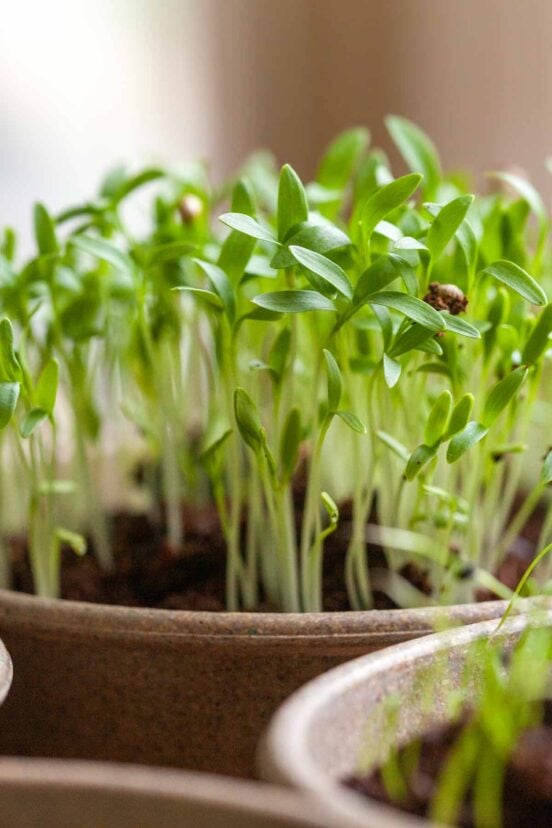










Heart warming! Thank you David, I really enjoyed your article about Ilda, her cooking, and her Portuguese hospitality. You really are a wonderful writer. You pulled me in, I felt like I was there in the room with you and Ilda, right where I wanted to be. In our current times your story gives me hope of the good that still exists in this world, and the kindness of people in a real story, when we see more daily of the unkindness of those around us, and not so much of the good and compassion for the human condition. A present not just for you, but one for your parents too; Saudade. This story makes my heart happy, but yet carries the sadness that comes with Saudade. The longing for that time, that place, that experience that was from the heart.
Lora, from the bottom of my heart–thank you.
I just found this article thanks to your IACP food writing nomination. Your story touched me deeply. I am from Lisbon, but Alentejo always had a special place in my heart. The food is wonderful, and the people are genuinely kind. My Austrian husband and my 6-year-old daughter also love it as much as me. I’ve lived abroad for more than twenty years now, every 4 to 5 years we change countries but there is nothing like Portugal. Although I return every year my “saudades” never go away. I’m proud and happy that my husband and my daughter have grown to love it, too. My husband is always moved by the kindness and hospitality of our people. Ilda sounded like a very special person. And although it is a pity she is no longer there, the memories of your meeting and her kindness will forever remain with you and now with us. Thank you for sharing it.
Maria, it is always a pleasure to share with fellow Lusophiles. The Alentejo is spectacular and is one of my very favorite places on earth!
“For your parents.”
See, David. Your writing has this way of sneaking up on me, and delivering an emotional wallop. I can only imagine how that resonated with you; it got me right in the gut when I read that. This amazing woman rightly judged that Momma and Poppa Leite raised you right, and she was honoring that.
Massive kudos on being an IACP finalist; fingers crossed for you!
Ling, thank you. Yup, Momma and Poppa Leite didn’t too bad of a job raising me, huh?!
Dear Ling: Thank you for your touching comments. Senhora Ilda Vinagre has been in our hearts and prayers since the day David told us about her and gave us her beautiful hand-painted platter. Her kindness to David when he visited with her will always be appreciated and engraved on our hearts. We thank God for putting her in David’s life (and ours) with her culinary gifts, her warm personality, and true Portuguese hospitality. She’s one fine and classy lady, and she’s been “grafted” onto our lives forever! God bless her and God bless you, too, Ling. It’s such a blessing when your “kid” reflects and remembers a loving childhood. Peace.
So lovely to hear from the both of you, and thank you…! 🙂 Yep – I’m counting my blessings too!